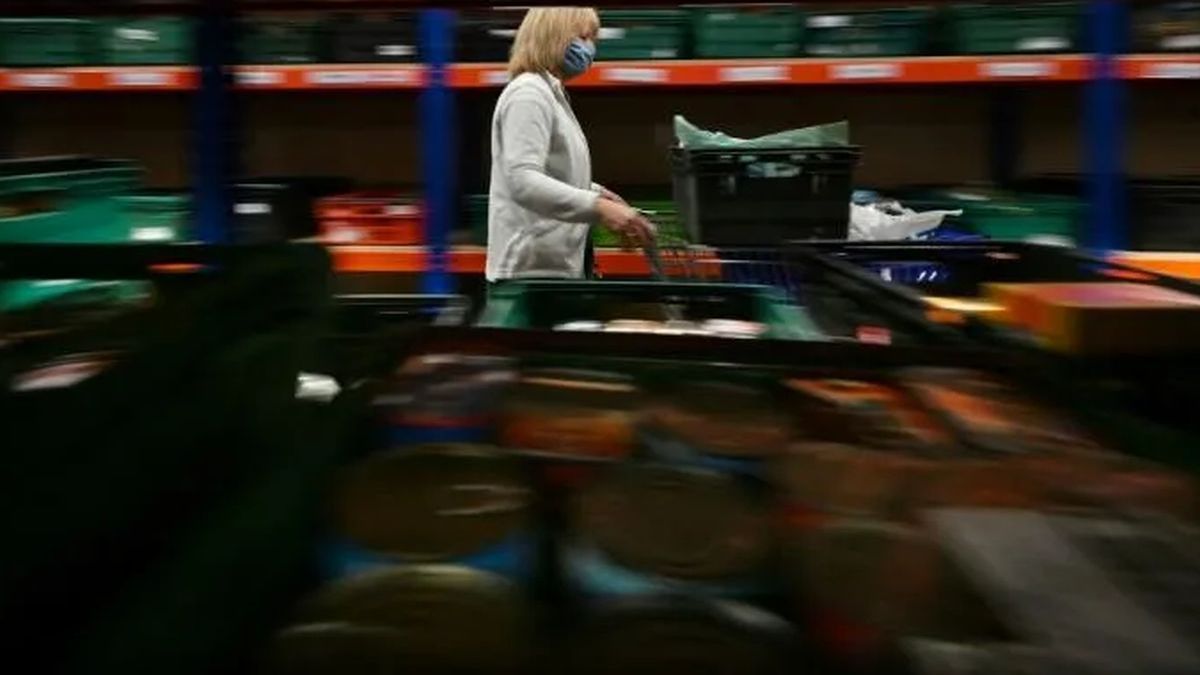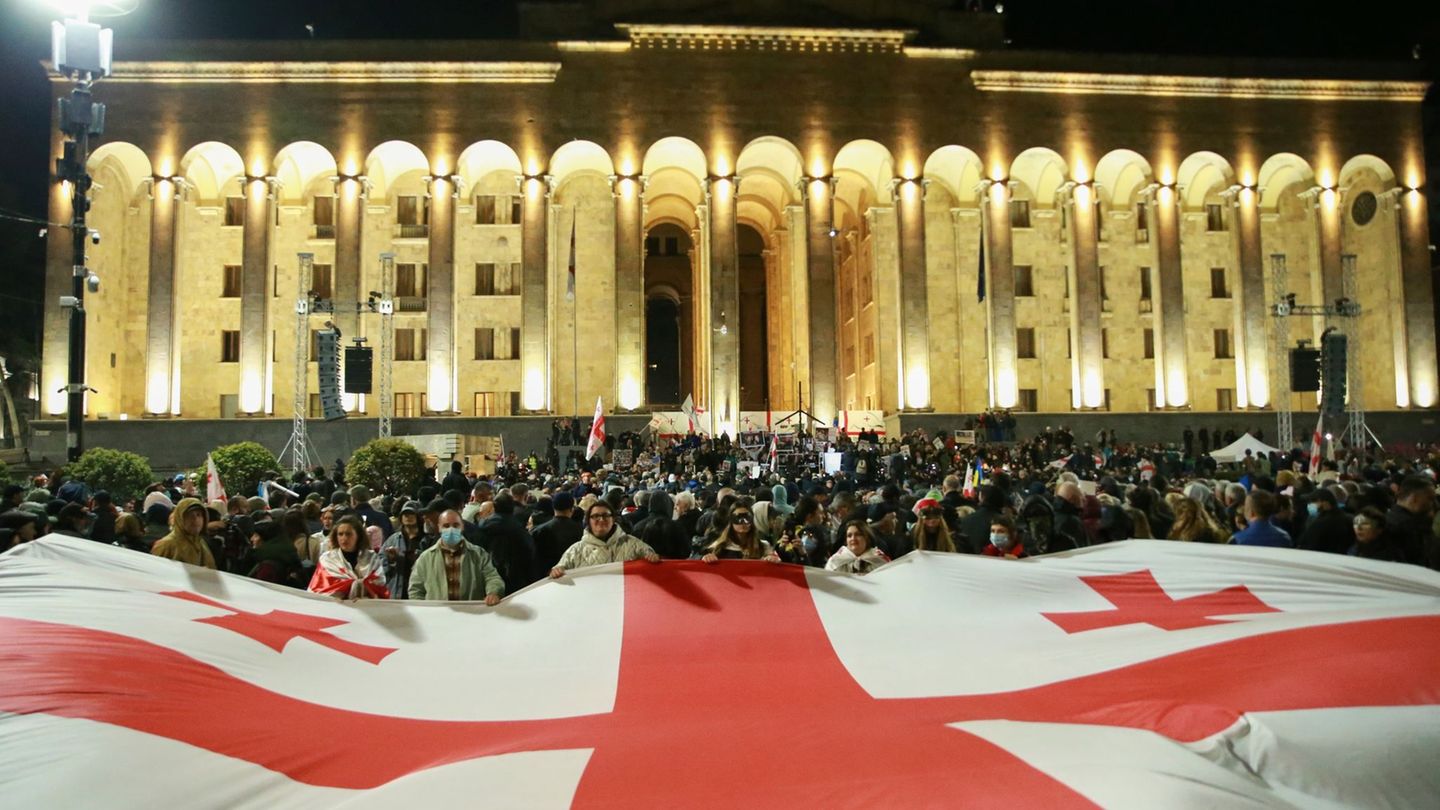“It’s like a nightmare. Worst case, maybe 30,000 people.”
95% of the products of this food bank, managed by the Trussell Trust association, come from donations from customers in local supermarkets.
But the current situation has led to requesting assistance from people who previously offered it.
Before, “I always used to put something in the cart of the food bank, but now it’s my turn to receive help,” Heidi, 45, explains to AFP, acknowledging that she has a hard time coping with price increases for “absolutely everything.” “.
Like many Britons, this winter he will have to choose between “warming up or eating”, he says. “My electricity bill is going up. Now I pay around 80 pounds ($110 or 95 euros) a month, compared to 40 or 50 last year,” he laments.
– System “defective” –
The number of people receiving emergency food at Trussell Trust centers across the country rose from around 26,000 in 2009 to more than 2.5 million in 2021.
British inflation rose to 5.4% in December, its highest level since March 1992.
And, according to anti-poverty campaigner Jack Monroe, many staple foods have gone up much higher. The cheapest pasta in your local supermarket a year ago was £0.29 per 500 grams, while today it is £0.70, an increase of 141%, he says.
The cheapest rice was £0.45 a kilo, but now it costs £2. “It’s a 344% increase, hitting the poorest and most vulnerable households,” he wrote in a tweet read by millions.
“The system by which we measure the impact of inflation is fundamentally flawed: it completely ignores reality and real price increases for people on minimum wages” or lower incomes.
Beckett agrees that “the inflation measure doesn’t take into account that cheap food is up hundreds of percentage points.”
Low-income families are under increased pressure after the British government returned welfare benefits to pre-pandemic levels, having temporarily increased them during the health crisis.
In 2020, 42% of food bank clients were children. And now many more parents have to work up the courage to come, says Beckett.
“They have already dispensed food for themselves to make sure their children eat, but they cannot feed their children without help” because “when it’s cold, people have to choose between eating or getting warm,” he adds.
chronic health problems
The Joseph Rowntree Foundation, which advocates against poverty, points out in a report published this month that “for children, severe food insecurity is linked to chronic health problems such as asthma and depression.”
And “adults living in food insecure households have a higher rate of developing chronic diseases such as arthritis, asthma, diabetes and mental health problems,” adds this study on poverty in the United Kingdom in 2022.
The foundation denounces the limitations of the British welfare system, such as having to wait a minimum of five weeks before receiving the first benefit payments.
Other activists also criticize the fact that child benefits are limited to two children per family.
The cost of living in the UK is set to soar further in April due to a tax hike and further expected increases of around 50% in household energy bills.
And to pay the huge bill for the measures against covid-19, future tax increases are expected.
“I never thought I’d be in this situation,” says Heidi.
Source From: Ambito
David William is a talented author who has made a name for himself in the world of writing. He is a professional author who writes on a wide range of topics, from general interest to opinion news. David is currently working as a writer at 24 hours worlds where he brings his unique perspective and in-depth research to his articles, making them both informative and engaging.




